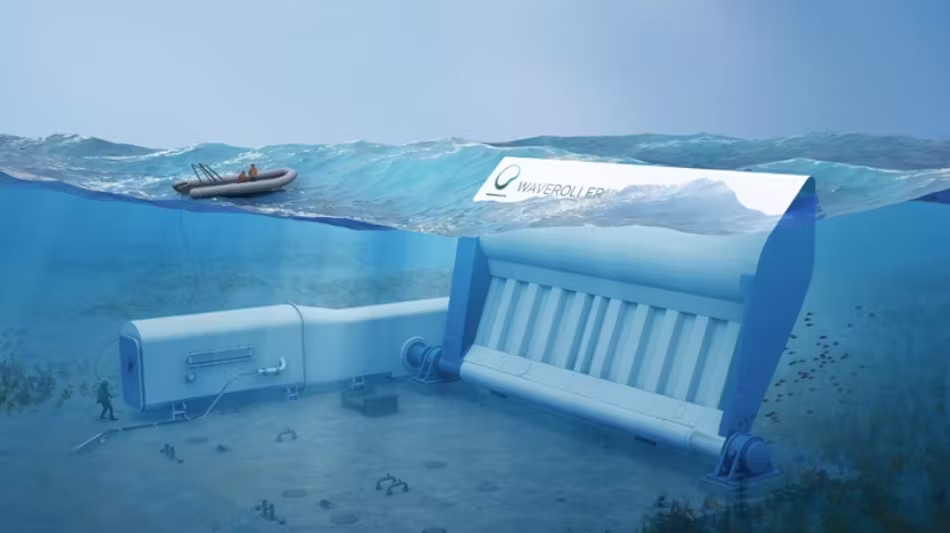“This is a major milestone in our journey toward harnessing ocean energy for sustainable electricity generation in the country!” the company said in a LinkedIn post.
“As a company committed to sustainable energy solutions, this validation strengthens our belief that renewable ocean energy can coexist harmoniously with Namibia’s rich marine ecosystems. It sets the stage for more eco-friendly innovations in Africa’s renewable energy sector…. This pilot will serve as a blueprint for scaling ocean energy technology across the SADC region, offering clean, predictable, consistent, baseload and reliable renewable energy for generations to come.”
In September, WaveRoller was given the go-ahead to deploy a 2MW wave energy array with four WaveRoller energy converters in Portugal. Portugal’s Ondas de Peniche (ONDEP) project, which started in October and will go for five and half years, was awarded €19 million from the EU’s Horizon Europe funding program for the deployment.
The ONDEP project will encompass the full spectrum of project activities — from design and manufacturing to testing, deployment, and operation. Once the wave energy converters (WECs) are connected to the grid, they will generate electricity for an additional eight years after the project’s official end.
“Wave energy is the largest untapped renewable energy resource in the world. The ONDEP project is poised to be among the first pilot wave farms globally, advancing this new industry to an industrial level. It will pave the way towards a zero-carbon future,” said Rémi Gruet, CEO of Ocean Energy Europe.
By 2030, ONDEP plans to unlock the potential for 11 wave energy farms across 8 countries on 4 continents, with a total cumulative capacity of 83 MW. Looking further ahead to 2035, the project aims to demonstrate a Levelized Cost of Energy (LCOE) of less than 100€/MWh, paving the way for a sustainable blue economy. This could also lead to the creation of up to 500,000 jobs across Europe. – Blue Economy News























